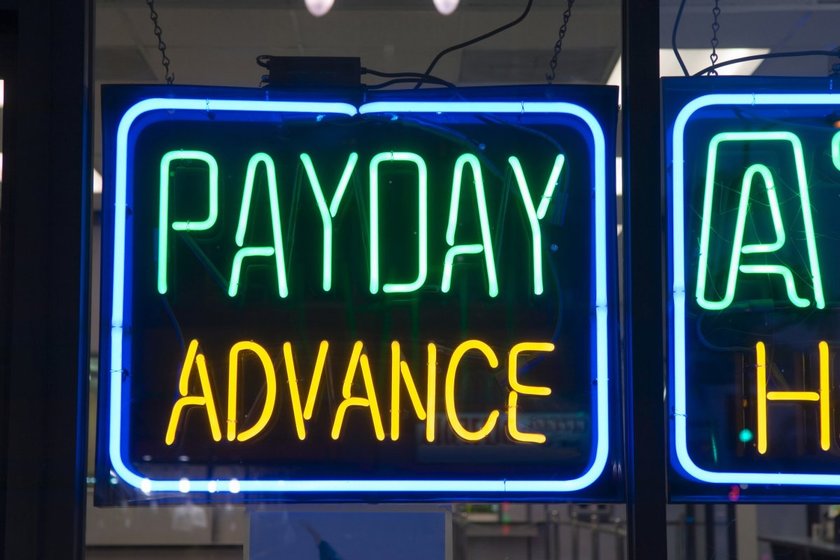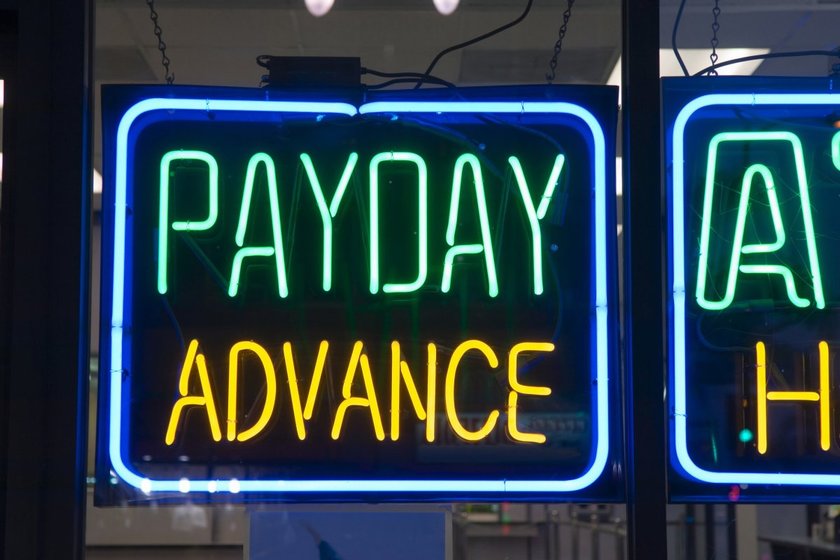Need money badly? You don't need to have good credit to find plenty of businesses willing to lend you cash.That isn't good news. Financial companies that lend money to people desperate for cash tend to have high-interest strings attached, and offer little time to repay the debt.[See: 10 Easy Ways to Pay Off Debt.]On almost a daily basis, attorney Robert Swearingen fields phone calls from folks who have taken out loans from payday lending or auto title loan stores and have come to quickly regret it. "The stories are always the same. These are not loans of convenience. These are loans taken out of desperation," says Swearingen, who works at Legal Services of Eastern Missouri Inc., a nonprofit that provides free civil legal assistance to low-income individuals and the elderly in eastern Missouri.For several years, the federal Consumer Financial Protection Bureau, or CFPB, has been studying the industry and crafting new rules that will eventually regulate payday lenders and other high-cost, short-term financial products. In June, the agency announced its proposed rules, and invited public comment until Oct. 7. The industry as a whole isn’t happy, saying that the regulations are onerous and will cause payday lenders to shut down, leaving cash-strapped consumers without a way to get a loan. Alarmist? Here, we examine these proposed rules, when they will go into effect and what the consequences could look like. [See: What to Do If You've Fallen (Way) Behind on Your Credit Card Payments.]The rules. Lenders would be required to take steps to ensure consumers actually have the ability to repay their high-interest, short-term loans. Consumers would also be protected from the lender repeatedly trying to access their bank account. For instance, an 18-month CFPB study found that half of the customers of online payday and payday installment services were charged penalty fees for not paying their debts on time. On average, a customer who took out a payday loan could also look forward to getting charged $185 in bank penalties. More than a third of borrowers who couldn't pay off a payday loan ended up losing their bank account. If these rules go into effect, a lender would have two shots at getting its money. After that, it would have to get a new authorization from the borrower to access the bank account.The timeline. Based on previous history, expect to see the rules take effect in two or three years. For instance, in November 2014, the CFPB proposed new rules to protect consumers who use prepaid cards; they'll take effect on Oct. 1, 2017. The CFPB has not, however, announced any decision on when (or even if) the rules for payday lenders will go into effect. But if you are a betting person, put your money on 2019.The effects. What might happen once the rules are enacted? It's anyone's guess, but some insiders have a few ideas.New types of lending will crop up, probably in the long-term lending space. It's already happening, Swearingen says."Payday loans are under such scrutiny that subprime lenders are moving customers toward installment loans, where you pay off the loan in 12 to 24 months," Swearingen says.That sounds good – it's easier to pay off $500 in a year than two weeks. But the interest is still high enough, Swearingen says, that financially, it's still a costly deal for the customer.Financial services attorney Valerie Hletko agrees that installment loans could gain popularity. She is a District of Columbia-based partner with BuckleySandler LLP, which represents financial services companies."Consumers may shift to installment loans," she predicts. "Reducing or eliminating access to payday loans will have no effect on the need for credit."[See: 12 Simple Ways to Raise Your Credit Score.]Time will tell, but many industry experts also predict that the payday lending industry will shrink as the worst of the predatory lenders find themselves crushed under the weight of the new regulations.But if the payday lending industry were to completely close up shop in the face of the new regulations, some customers may find riskier ways to borrow money, predicts W. Todd Roberson, a senior lecturer of finance at the Indiana University Kelley School of Business in Indianapolis, as he mulls the potential fallout of such a scenario."Putting it out of business will simply drive it underground into the hands of gangs, local crime bosses or worse," Roberson says. "While payday lenders might not be the most respected businesses, at least they operate above the law, are required to follow employment and financial disclosure policies that any business must follow and generally only harass people who can't pay; think of how a criminal element would handle collections."Still, even if there are some negative consequences for consumers, there will be positive outcomes, too. Surely, there will be some former payday lending customers who will find a less costly way to take out a loan."I spoke to a woman just yesterday," Swearingen says. "She took out a car title loan. She was working two jobs at the time but had doctors' bills and some large utility bills, and she needed money to pay the rent."For those who don't know, a car title loan is when you hand over the title of your paid-off car in exchange for a loan. Once you repay the loan, you get your car title returned."A year later, she lost one of her jobs," Swearingen says, "and, yesterday, the lender came and took her car away."And while Swearingen says he cannot take a position on the merits of the proposed CFPB laws, it's easy to conclude that he wouldn't miss the auto title lenders, were they to be regulated out of existence."Auto title loans are the most coercive of all the loans," he says. "I've had clients, little old ladies who live outside [of] the city where there's very little mass transit, and they get involved with a title lender. And they'll pay the interest on that loan for years and will never pay it down. And you ask, 'Why do you continue to pay them?' And they'll say … 'I can't afford to lose my car. If I lose my car, I can't get food or my prescriptions.' For some people, these loans are a life-or-death situation.".





